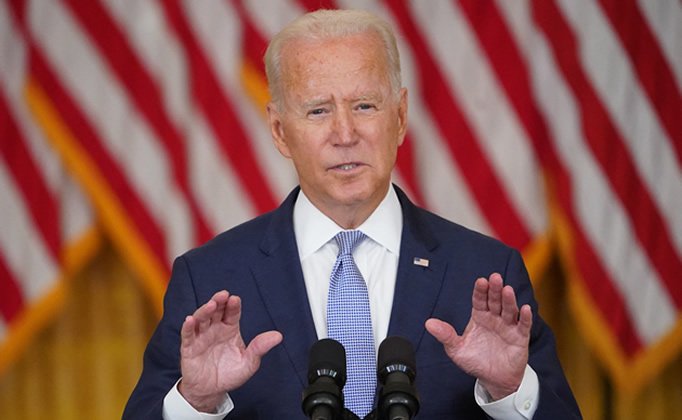
The daring US helicopter raid deep in Syria that ended in the death of one of the world’s most wanted men gives Joe Biden the kind of dramatic military win presidents crave — and one the Democrat particularly needed.
“A major terrorist threat to the world” was extinguished, Biden said Thursday, unveiling details of the death of “horrible” Islamic State leader Ibrahim al-Hashimi al-Qurashi.
Facing simultaneously a showdown with Russia over Ukraine, a flurry of North Korean missile tests, an ever-diminishing window of opportunity to control Iran’s nuclear program and Chinese sabre-rattling over Taiwan, Biden’s foreign policy To Do list is daunting.
And Republican critics have worked hard to generate a narrative that Biden is weak, making the world a more dangerous place.
The raid, which saw no US losses, is “a strong message to terrorists around the world: We will come after you and find you,” Biden said.
In the post-9/11 world, killing far-flung jihadist leaders has become almost an expected display of strength for presidents.
Under Barack Obama, Americans cheered the rivetting news in 2011 that Al-Qaeda founder Osama Bin Laden, the man behind the September 11, 2001 attacks on the United States, had finally been killed by US special forces in Pakistan.
Donald Trump, who repeatedly claimed to be the greatest president on many fronts, was if anything even more triumphant after the 2019 US operation in Syria killing Qurashi’s predecessor as head of the IS — Abu Bakr al-Baghdadi.
In eyebrow-raising comments, Trump used a national address to describe how Baghdadi “died like a dog… in utter fear, in total panic and dread, terrified of the American forces bearing down on him.”
Biden’s record as commander in chief, until now, was associated mostly with the humiliating retreat from Afghanistan — even if the White House argues that the chaos was unavoidable in exiting a failed, 20-year war.
Now he has a clearcut victory.
“This operation is testament to America’s reach and capability,” he said in his own address to the nation.
– Grudging applause –
Even Republicans who have been pounding Biden over Russia, Iran and China, could not avoid applauding the apparently textbook military strike carried out in the dead of night.
“Very good news,” Senator Mitt Romney said.
“I really appreciate the counterterrorism operation,” said Senator Lindsey Graham, although he tempered his appreciation by claiming the administration “is deaf, dumb and blind when it comes to the growing radical Islamic threats emerging from Afghanistan.”
Biden will next have to return to the higher-stakes tussles with the likes of Moscow and Beijing, which critics say are exploiting signs of American indecision.
“Is it any surprise that Chinese planes are flying over Taiwan? Or that North Korea is testing missiles again? Or that Iran is ramping up its nuclear program? They all sense Biden’s weakness,” Nikki Haley, who served as UN ambassador under Trump, tweeted this week.
Biden, who has decades of foreign policy experience from his time in the Senate, lays out a very different picture.
On Ukraine, for example, he is sending US troops to bolster NATO forces in Europe and leading intensive diplomatic efforts to maintain Western unity against Russia, with threats of “devastating” sanctions, levied in coordination with EU powers, should Moscow launch an invasion.
But whatever he does is unlikely to get support from opponents in a brutally divided Washington.
On one side, Republican hawks are hammering Biden for not imposing preemptive sanctions against Russia. At another extreme, the right’s isolationist wing is questioning why the United States should want to defend Ukraine from Russia at all.
Celia Belin, a researcher at the Brookings Institution think tank, said US foreign policy debates often revolve around a “trial of weakness” between hawks and leaders who want more gradual approaches.
Biden is doing a “pretty good job of balancing the competing demands,” said Kori Schake, director of foreign policy studies at the right-leaning American Enterprise Institute.
AFP





